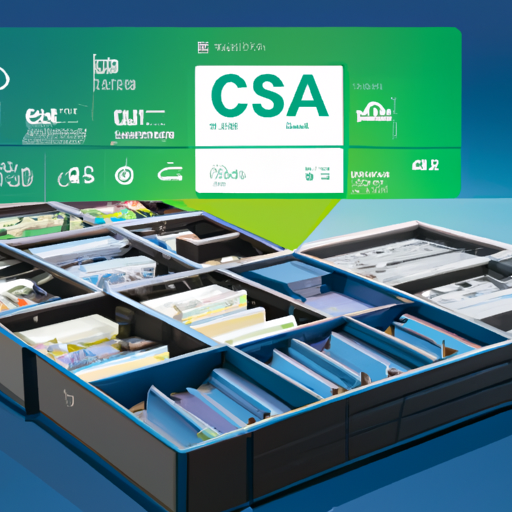In today's market, there are many types of mainstream management model products, such as traditional management model products, cloud-based management model products, intelligent management model products, etc. These products have certain differences in terms of functionality, performance, price, etc., and below is a detailed comparative analysis of them.

Firstly, traditional management model products refer to those products that require physical devices for management, usually requiring the installation of management software locally and connecting to the devices through wired or wireless networks. The advantage of this type of product is stability, reliability, and high security, but the disadvantage is that it requires a large amount of physical space and is relatively cumbersome to manage. On the other hand, cloud-based management model products refer to products that are managed through cloud services, where users only need to connect to the cloud platform via the internet to remotely manage the devices. The advantage of this type of product is convenience, space-saving, but the disadvantage is relatively lower security and requires a stable network environment.
Furthermore, intelligent management model products refer to management products with intelligent functions, such as artificial intelligence, big data analysis, etc. The advantage of this type of product is the ability to automatically adjust management strategies according to user needs, improve management efficiency, but the disadvantage is the relatively higher price and the need for a higher level of technical expertise to operate.
In terms of functionality, traditional management model products usually only achieve basic management functions such as monitoring, configuration, maintenance, etc., while cloud-based management model products can achieve more functions such as remote monitoring, automated configuration, data backup, etc. Intelligent management model products are more intelligent, automatically adjusting management strategies based on user behavior and needs to improve management efficiency.
In terms of performance, traditional management model products typically have high stability and security, but limited by the performance of physical devices, management efficiency is lower. Cloud-based management model products have higher flexibility and scalability, but may experience delays due to network environment and cloud platform performance. Intelligent management model products have higher intelligence and automation functions, but may experience misjudgments due to hardware and algorithm performance.
In terms of price, traditional management model products are usually lower-priced, suitable for small and medium-sized enterprises, but require a lot of manpower and resources for management. Cloud-based management model products are higher-priced, suitable for large enterprises, but can save management costs. Intelligent management model products are the most expensive, suitable for high-end users, but can improve management efficiency and save manpower and resources.
In conclusion, different types of management model products have certain differences in functionality, performance, price, etc., and users should choose products based on their own needs and budget. Traditional management model products are suitable for small and medium-sized enterprises, cloud-based management model products are suitable for large enterprises, and intelligent management model products are suitable for high-end users. Hopefully, this article is helpful to readers.
In today's market, there are many types of mainstream management model products, such as traditional management model products, cloud-based management model products, intelligent management model products, etc. These products have certain differences in terms of functionality, performance, price, etc., and below is a detailed comparative analysis of them.

Firstly, traditional management model products refer to those products that require physical devices for management, usually requiring the installation of management software locally and connecting to the devices through wired or wireless networks. The advantage of this type of product is stability, reliability, and high security, but the disadvantage is that it requires a large amount of physical space and is relatively cumbersome to manage. On the other hand, cloud-based management model products refer to products that are managed through cloud services, where users only need to connect to the cloud platform via the internet to remotely manage the devices. The advantage of this type of product is convenience, space-saving, but the disadvantage is relatively lower security and requires a stable network environment.
Furthermore, intelligent management model products refer to management products with intelligent functions, such as artificial intelligence, big data analysis, etc. The advantage of this type of product is the ability to automatically adjust management strategies according to user needs, improve management efficiency, but the disadvantage is the relatively higher price and the need for a higher level of technical expertise to operate.
In terms of functionality, traditional management model products usually only achieve basic management functions such as monitoring, configuration, maintenance, etc., while cloud-based management model products can achieve more functions such as remote monitoring, automated configuration, data backup, etc. Intelligent management model products are more intelligent, automatically adjusting management strategies based on user behavior and needs to improve management efficiency.
In terms of performance, traditional management model products typically have high stability and security, but limited by the performance of physical devices, management efficiency is lower. Cloud-based management model products have higher flexibility and scalability, but may experience delays due to network environment and cloud platform performance. Intelligent management model products have higher intelligence and automation functions, but may experience misjudgments due to hardware and algorithm performance.
In terms of price, traditional management model products are usually lower-priced, suitable for small and medium-sized enterprises, but require a lot of manpower and resources for management. Cloud-based management model products are higher-priced, suitable for large enterprises, but can save management costs. Intelligent management model products are the most expensive, suitable for high-end users, but can improve management efficiency and save manpower and resources.
In conclusion, different types of management model products have certain differences in functionality, performance, price, etc., and users should choose products based on their own needs and budget. Traditional management model products are suitable for small and medium-sized enterprises, cloud-based management model products are suitable for large enterprises, and intelligent management model products are suitable for high-end users. Hopefully, this article is helpful to readers.







